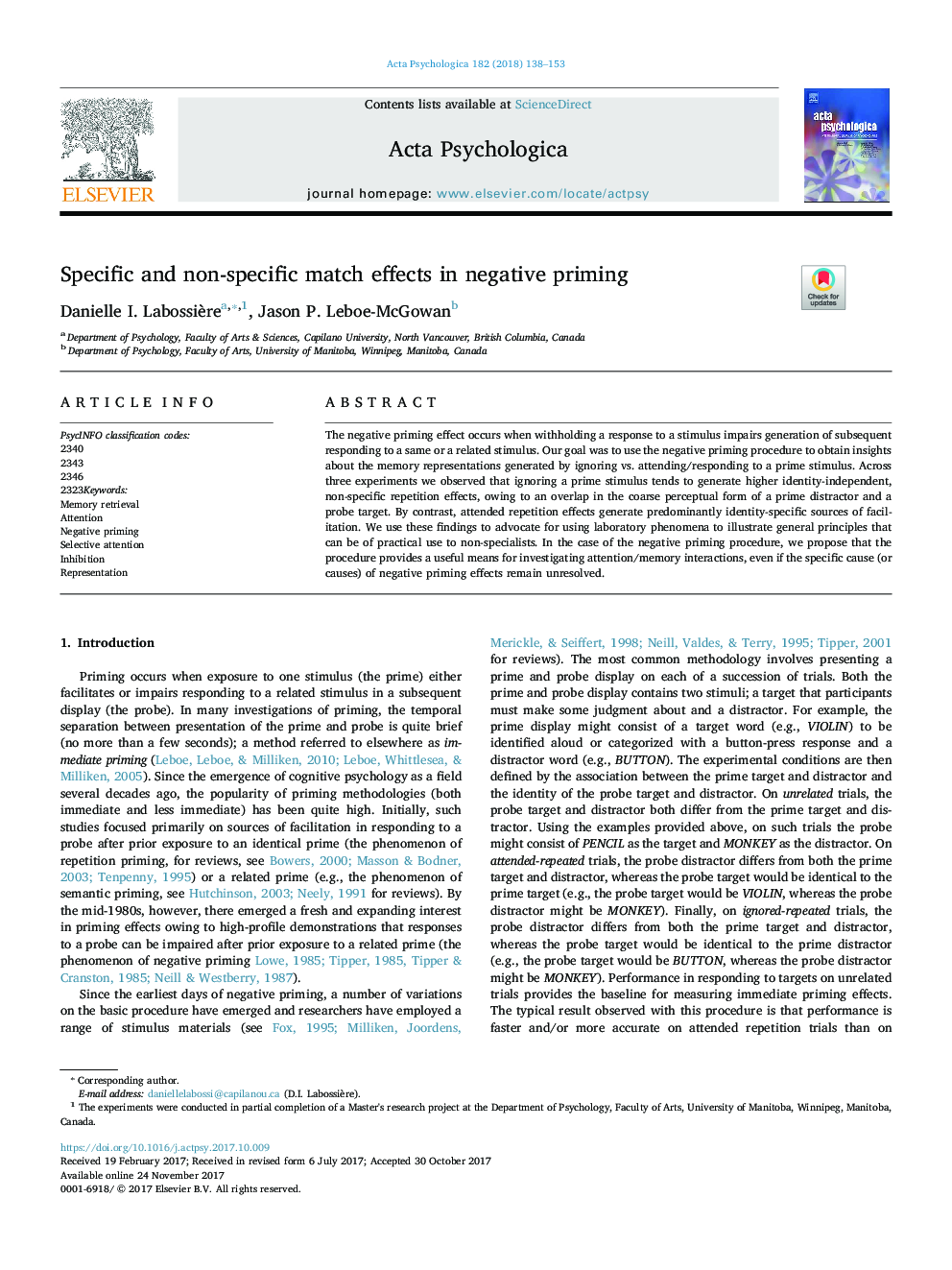| Article ID | Journal | Published Year | Pages | File Type |
|---|---|---|---|---|
| 7276894 | Acta Psychologica | 2018 | 16 Pages |
Abstract
The negative priming effect occurs when withholding a response to a stimulus impairs generation of subsequent responding to a same or a related stimulus. Our goal was to use the negative priming procedure to obtain insights about the memory representations generated by ignoring vs. attending/responding to a prime stimulus. Across three experiments we observed that ignoring a prime stimulus tends to generate higher identity-independent, non-specific repetition effects, owing to an overlap in the coarse perceptual form of a prime distractor and a probe target. By contrast, attended repetition effects generate predominantly identity-specific sources of facilitation. We use these findings to advocate for using laboratory phenomena to illustrate general principles that can be of practical use to non-specialists. In the case of the negative priming procedure, we propose that the procedure provides a useful means for investigating attention/memory interactions, even if the specific cause (or causes) of negative priming effects remain unresolved.
Keywords
Related Topics
Life Sciences
Neuroscience
Cognitive Neuroscience
Authors
Danielle I. Labossière, Jason P. Leboe-McGowan,
